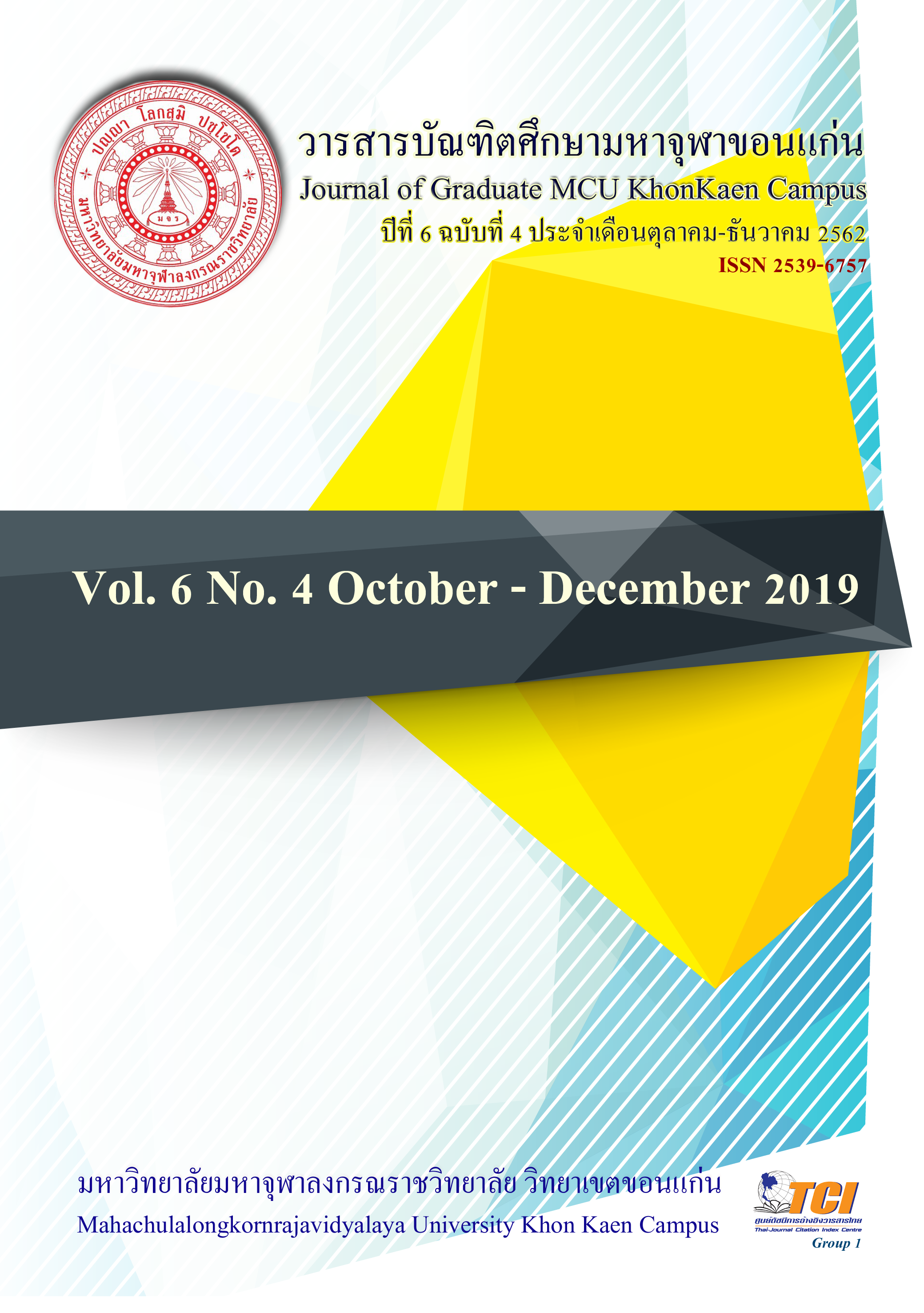The Development of Ethics of Professional Teachers under the Office of Kalasin Primary Education Service Area I
Main Article Content
Abstract
The research was the mixture of the quantitative and qualitative research methodologies with the following objectives : 1) to analyze the ethical principles of oneself governance, personnel governance and work control; 2) to develop the ethics in oneself governance, personnel governance and work control of the professional teachers under the Office of Kalasin Primary Education Service Area 1; 3) to present the model of the ethics development of the aforesaid professional teachers. The population and samples used in the quantitative research included 117 purpo- sively selected informants including 9 education supervisors, 18 school administrators and 90 teachers; those used in the qualitative research were 10 experts in Buddhist studies, education and educational administration. The tools used in this study were the questionnaire, interview and group-discussion. The statistics used in data analysis were: Percentage, Mean and Standard Deviation.
The research results were as follows:
1) The ethical principles for oneself governance are the five precepts (pañcasīla), the four virtues for a good household life (ghāravasadhamma), awareness (satisampajañña), sufficiency economy; the ethical principles for personnel governance includes the four sublime states of mind (brahmavihāra-dhamma), the four bases of social solidarity (saṅgahavatthu-dhamma), the seven beautiful virtues (kalayāṇa - dhamma), the four prejudices (agati); for work control, they are the four paths of accomplishment (iddhipāda), the systematic attention (yonisomanasikāra), the three
good conducts (sucarita).
2) Based on the study of the ethics in oneself governance, personnel governance and work control of the professional teachers under the Office of Kalasin Primary Education Service Area 1, it showed that the statistical mean value of the professional teachers with high ethics achieved was at 4 .09; in the aspect of oneself governance, personnel governance and work control, their respective scores were 4.21, 4.05 and 4.01.
3) The model of the ethical development of the professional teachers called DEP (D=development, E=Ethics, P=Participation) consisting of three models: 1) oneself governance model which is the model that the professional teachers are endowed with disciplines, responsibility, morals, ethics, codes of ethics of teaching profession, duty awareness, sufficiency in living, savings, regulation compliance, respect in social regulations, adherence with dhammas and faith in democracy; 2) personnel governance model which is the model that the professional teachers are trained to have love, harmony, teamwork without complaints, friendliness to students and service users and acquirement of faith from subordinates; 3) work control model which is the model that the professional teachers have sacrifice, time dedication to work, attention to success of work, responsibility to assigned works, economical use of government resources, creative initiatives, more public relations work, ability to effectively apply the dhamma principles in the work performance.
Article Details
References
Children. Online. Retrieved March 2, 2019. from: backoffice.onec.go.th/uploaded2/Newssecgen/201806/20180604_
ppt02.pdf

